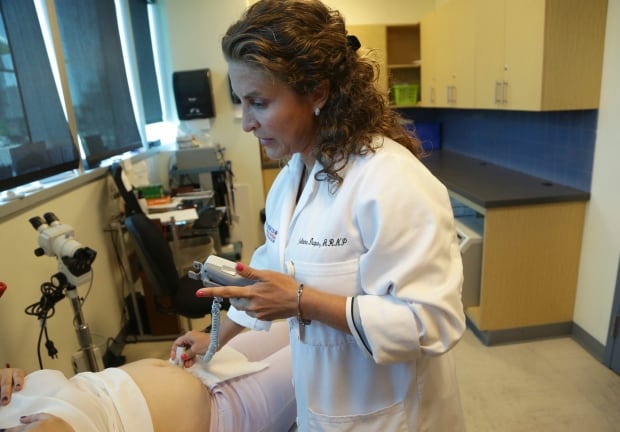Dire News of the Spread of Zika Virus
"Canada is the latest country to report a case of congenital malformation associated with a travel-related case of Zika virus infection."
World Health Organization situation report
"We are one of the countries that will be most vulnerable to these kinds of threats."
"We knew it was only a matter of time."
Steven Hoffman, associate law professor, director Global Strategy Lab, University of Ottawa

Luis Robayo/AFP/Getty Images The mosquito-borne Zika virus has been found to cause serious birth defects.
Add that to the fact that Canadians have a tendency to make frequent trips back to their countries of origin and you have a blueprint for disease transmission and spread.
A child in uterus, a foetus, has been found to be seriously physically affected by Zika. Health Canada has taken care to warn Canadian women to avoid travelling to countries in which the Zika virus has manifested if they are planning a pregnancy or if they are pregnant. At the same time, women who have travelled to those troubling geographies are being tracked, and if pregnant or if they become pregnant, are being examined for symptoms of transmission.
And now, Canada's public health agency has the dubious and rather frightful distinction of reporting the discovery of Canada's first foetus having "severe neurological congenital anomalies". This week marks the first instance of a reported case related to Zika birth defects in Canada. Many would say, under the circumstances, it was inevitable.
Earlier, Canada's Chief Public Health Officer, Dr. Gregory Taylor, had confirmed another instance where the virus was transmitted from mother to foetus. The mother had been infected while in her first trimester of pregnancy when she travelled abroad. Fortunately for that mother and for that baby, it is deemed to be normal even though it showed Zika virus traces in its brain fluid. It still cannot be given a complete bill of good health for its future, and will be monitored.
Travel to South and Central America and the Caribbean is turning out to be a dangerous venture for people seeking to avoid contracting Zika virus. And now Miami has also been implicated as a region where a cluster of Zika cases have surfaced. Roughly four million Canadians vacation in Florida annually. "Because it's [Zika virus] contained to a very small area within the country, we can't issue a travel advisory for the entire country. It doesn't make any sense because the risk is so localized. That's a new approach for us. We've never done that before", explained Dr. Taylor.

Dr. Juliana Duque uses a fetal heart monitor
on a patient who is in her first trimester of pregnancy in Miami before
giving the patient a Zika test. Obstetricians use ultrasounds to check
for signs of microcephaly during pregnancy and continue to monitor for a
congenital syndrome related to the infection after birth. (Lynne
Sladky/Associated Press)
The newly revealed birth defects in a Canadian foetus arose even as confirmed Zika virus cases are on the rise in Canada. A week ago there were 187 such confirmed cases and that number has since risen to 205, according to the Public Health Agency of Canada.
Microcephaly and neurological anomalies appearing in babies represent the most visible symbols of congenital Zika syndrome. And as horrible as these health complications are for the future of the children infected, more widespread damage can occur to babies, including some of those whose craniums appear of a normal size, a reality that has confounded health authorities, placing even greater stress on concerned communities.
In Canada, the greater proportion of the Zika-infected cases arose as a result of travel. Two of the cases resulted from sexual transmission. So far, thirteen cases of Zika have been revealed in pregnant women and of those the virus had been transmitted in two cases to the foetus.
Labels: Bioscience, Canada, Disease, Health

0 Comments:
Post a Comment
<< Home